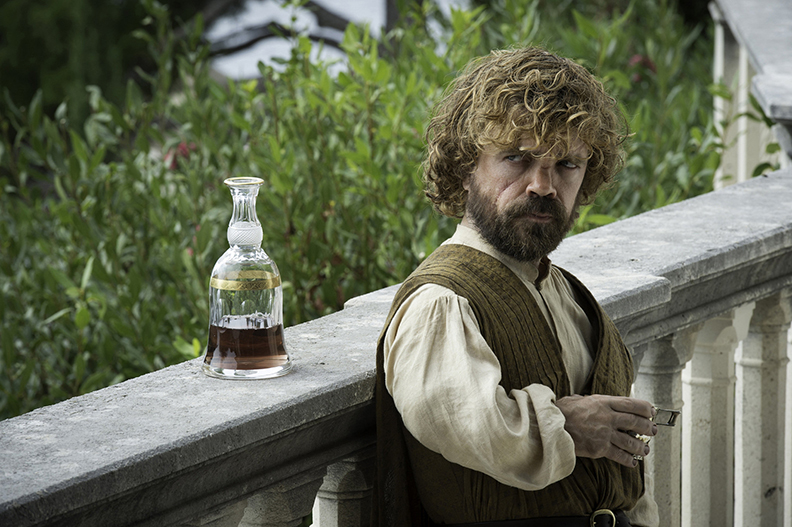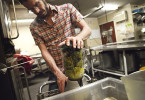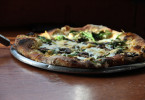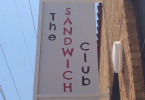In April, the Oklahoma State House passed a pair of bills whose aim was to modernize the state’s antiquated/archaic/Byzantine liquor laws. People noticed, seemingly excited that our endearingly old-fashioned state was taking a promising step forward, and celebrated the little victory. But nothing really came of it. The bills moved to the Senate to be further debated/altered, yet no action will be taken until February, when the legislature resumes. And although the bills received a solid majority of support (66-19 for SB 424 and 68-21 for SB 383), even if they pass the Senate vote, they’ll then be placed on a ballot for statewide approval before becoming law.
While this sounds like a ballin’ exercise in OG democracy, keep in mind that there are plenty of Oklahomans — like the wonderful folks who so cordially welcomed the President to our lovely state — who are, among other things, a bit hesitant to change. (Not saying those guys for sure wouldn’t be interested in supporting local breweries or buying wine and cold, high-point beer in grocery stores, but ignorant people are, y’know, ignorant.) So for anyone who’s on the fence or just wants to hear an affirming argument, here are a few good reasons why the Sooner State’s liquor laws need to change.
1. They don’t work
I mean, they work in terms of obedience. But if the point of our state’s funky laws is to prevent people from drinking (or at least keep them from drinking as much), then clearly they’re not working. Warm beer is an inconvenience, not a deterrent, to drinking. All this does is pointlessly delay the inevitable consumption of purchased beer. It forces people to refrigerate their beer and wait 15 minutes for it to cool before growing so impatient that they take the beer out of the fridge just as it’s below room temperature and start drinking it anyway. So everyone just wasted 15 minutes, and they’re still drinking warm beer. This is stupid.
The alternative is to buy cold, 3.2 beer, often in bulk, from a gas station or grocery store. For some reason a cold 12-pack of 3.2 beer is supposed to be considered safer or less inebriating than a warm six-pack of full-strength beer. (In fact, 3.2 beer was referred to in state law as non-intoxicating until the ’90s. High school me says LOL.) In the 15 minutes people wasted waiting for their full-strength beer to cool to slightly colder than lukewarm, they could have, hypothetically, shotgunned their way through half a 12-pack, rendering the relatively lower alcohol content moot. This, clearly, is also stupid. If the state is so concerned about protecting its citizens from the dangerous effects of alcohol and reducing alcohol consumption, why does it make beer that can be consumed faster and in higher volumes more easily accessible than beer that is typically consumed more slowly and in lower volumes?
2. They have unintended consequences
So Budweiser is allowed to sell cold beer pretty much everywhere, whereas Prairie Artisan Ales is allowed to sell only warm beer at liquor stores (which close at 9 p.m. and aren’t open on Sundays) or only 3.2 beer at its brewery. Now, you might be thinking: Well, shucks. Why don’t the local breweries just make their beer with lower alcohol content so they can sell them alongside Big Beer? That’s because most of the interesting styles of beer that make breweries like Prairie so popular traditionally have higher alcohol contents. Sure, there are session beers with less alcohol (Birra, Prairie’s flagship, is 4.5 percent alcohol —still too much to be sold in convenience or grocery stores, but much less than its nationally renowned Bomb!, which weighs in at a whopping, grandpa’s-cough-medicine tier 13 percent.), and COOP recently made its foray into the grocery-store-beer market by releasing a trio of 3.2 beers. But COOP is one of the biggest craft breweries in Oklahoma. It’s built up the foundation and the following to try to compete with Big Beer, and it’s one of the few that can afford to do so. And that’s all in spite of Oklahoma’s liquor laws, which have created an unfair competition that has to be played on Big Beer’s terms.
All this is to say that our state has allowed Big Beer to monopolize distribution, the importance of which can’t be overstated. You can’t buy beer if you can’t find it. (Well, actually you can, but it’s kind of illegal and involves meeting some guy on the internet.) Regardless of whether our state is intentionally stepping on the little guys to give the big boys a leg up, it’s still complicit. It is encouraging people to buy Big Beer by making it most people’s only option. Not every community in Oklahoma has The Well or The Cellar. Some people only have their local stop-and-rob, where they’re lucky to get such fine, rare brews as Michelob Ultra.
3. They’re just another embarrassing thing that makes Oklahoma look backward
The only other states with liquor laws as sad and backward as ours are Kansas, Utah, Colorado, and Minnesota. (And in Colorado you can legally smoke a joint while you’re eating dinner, so that kind of gives them a pass.) Not even Texas has liquor laws as antiquated as ours. Seriously, Texans hold this over our heads. People from Texas. The place where this guy was governor and this sounds reasonable is more advanced than us. No amount of Cotton Bowl wins could redeem that shame.





